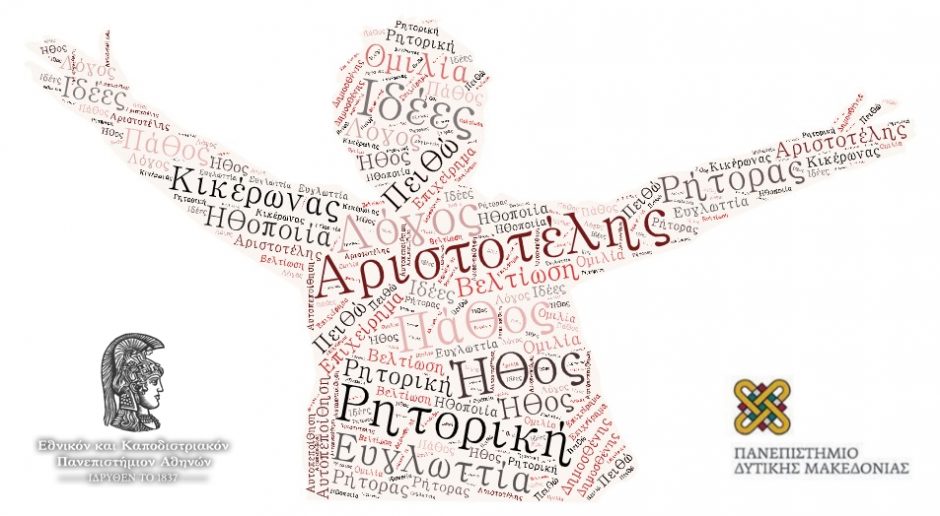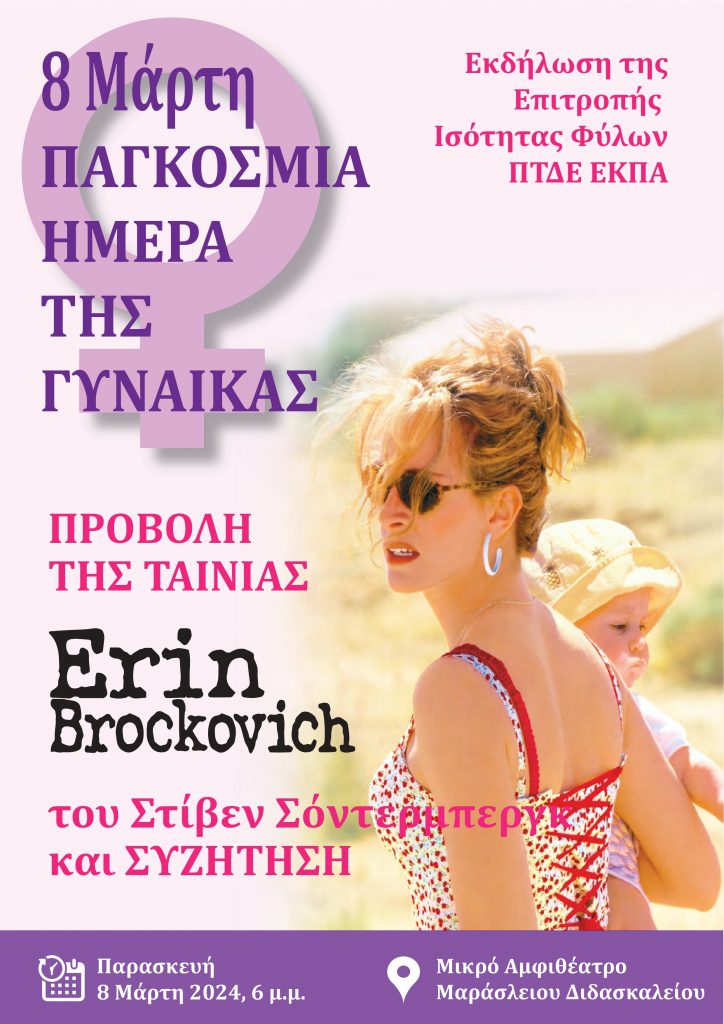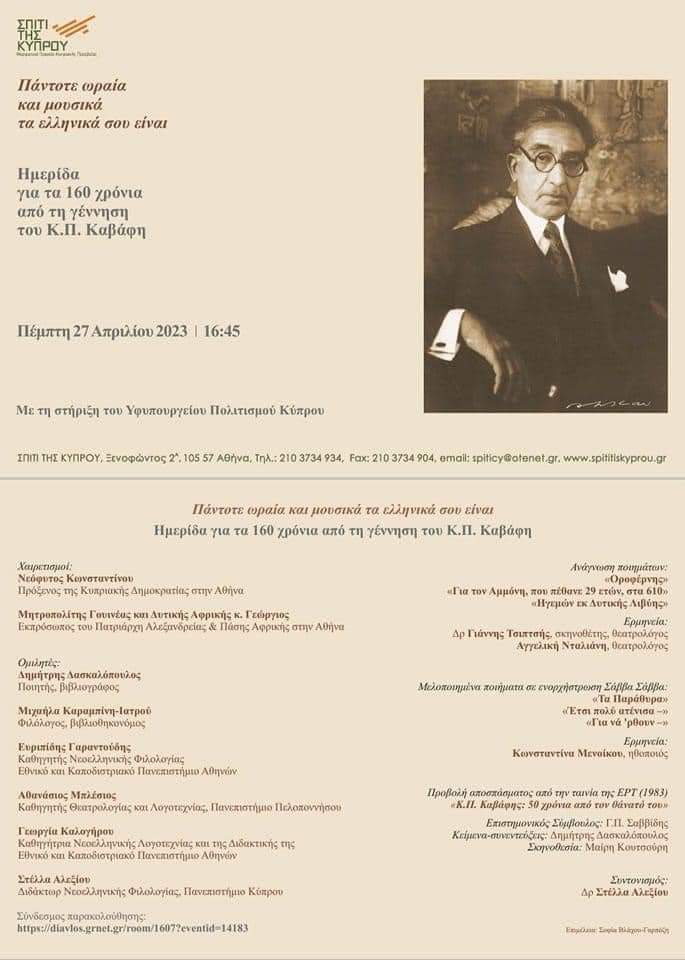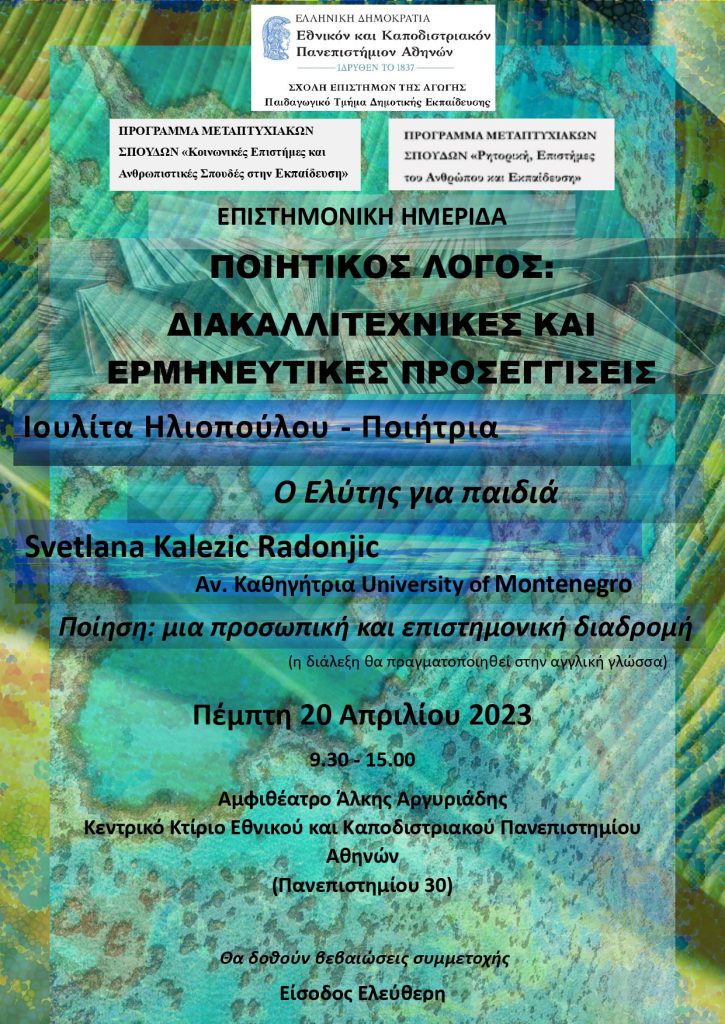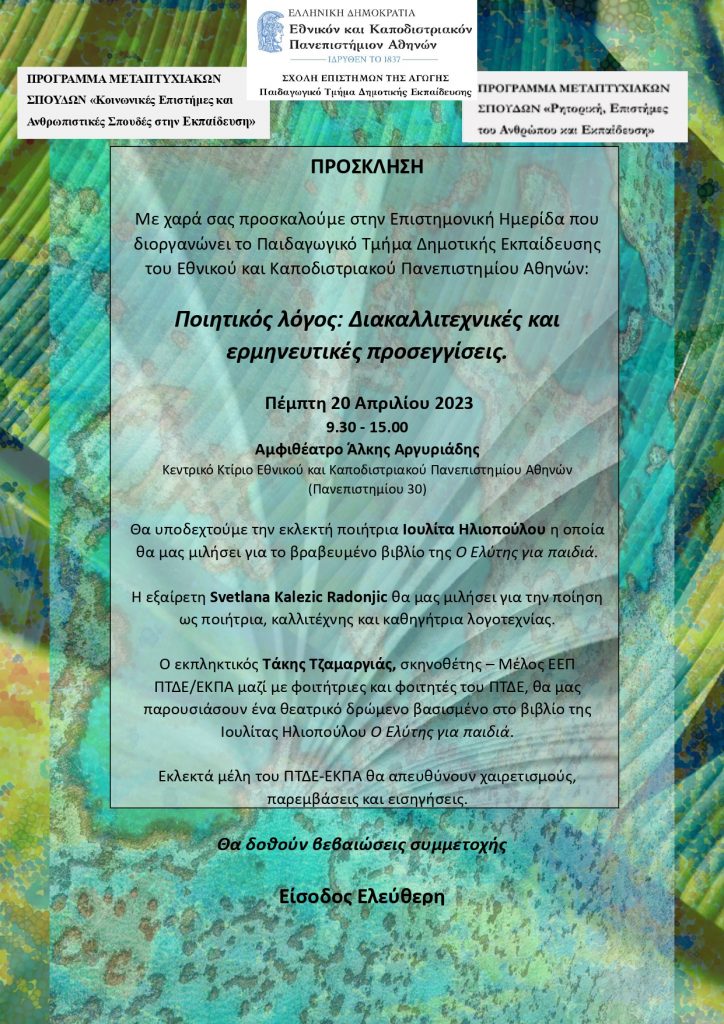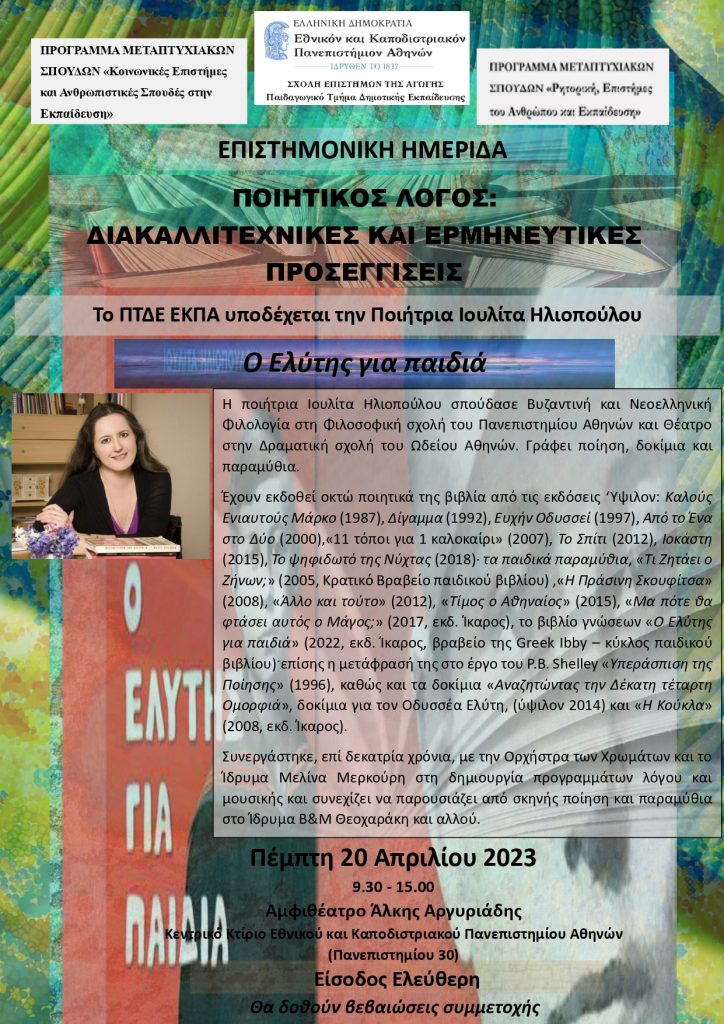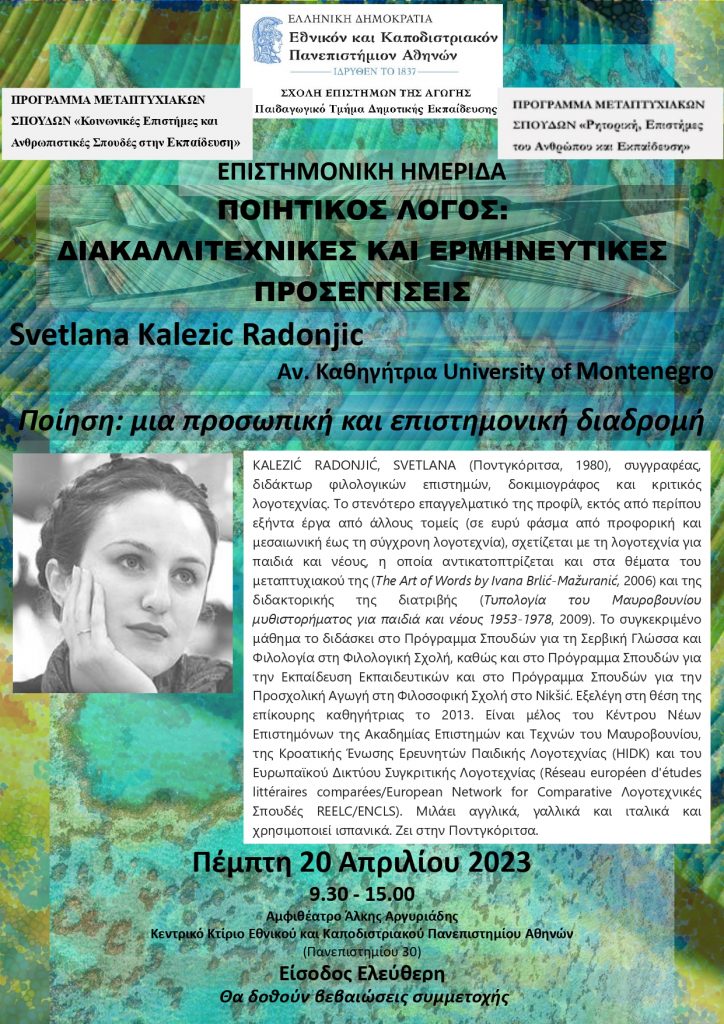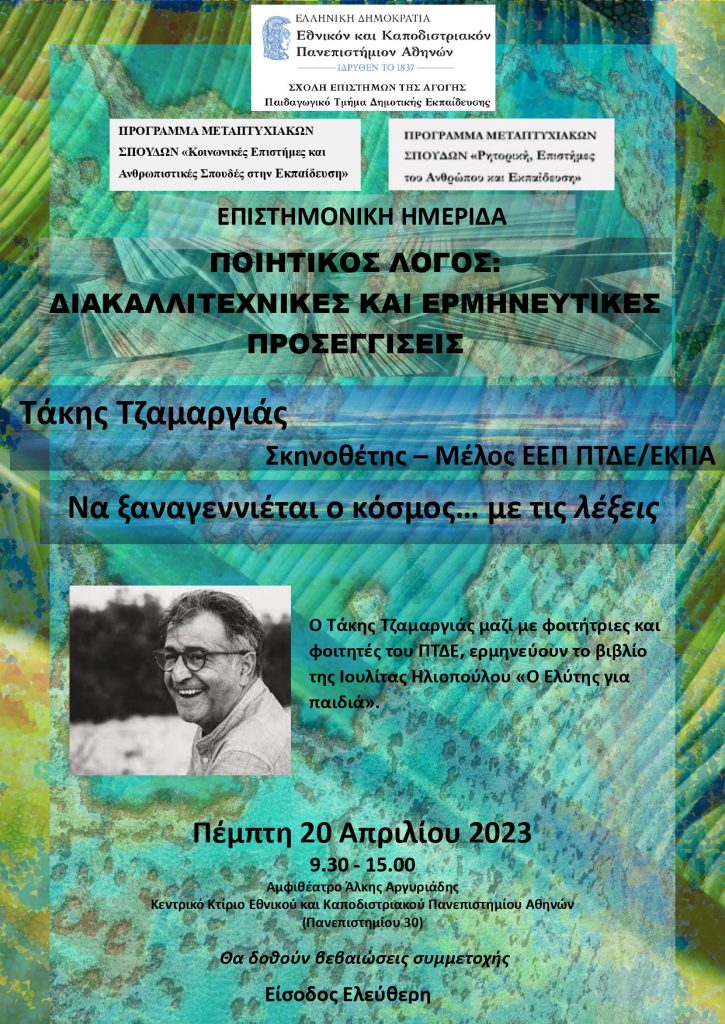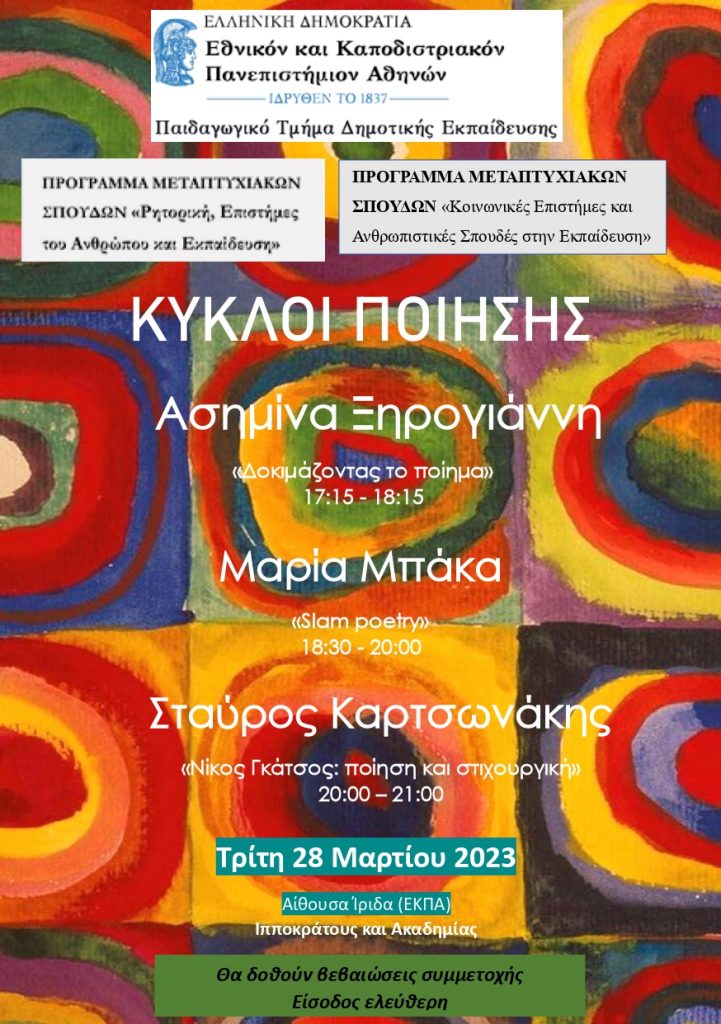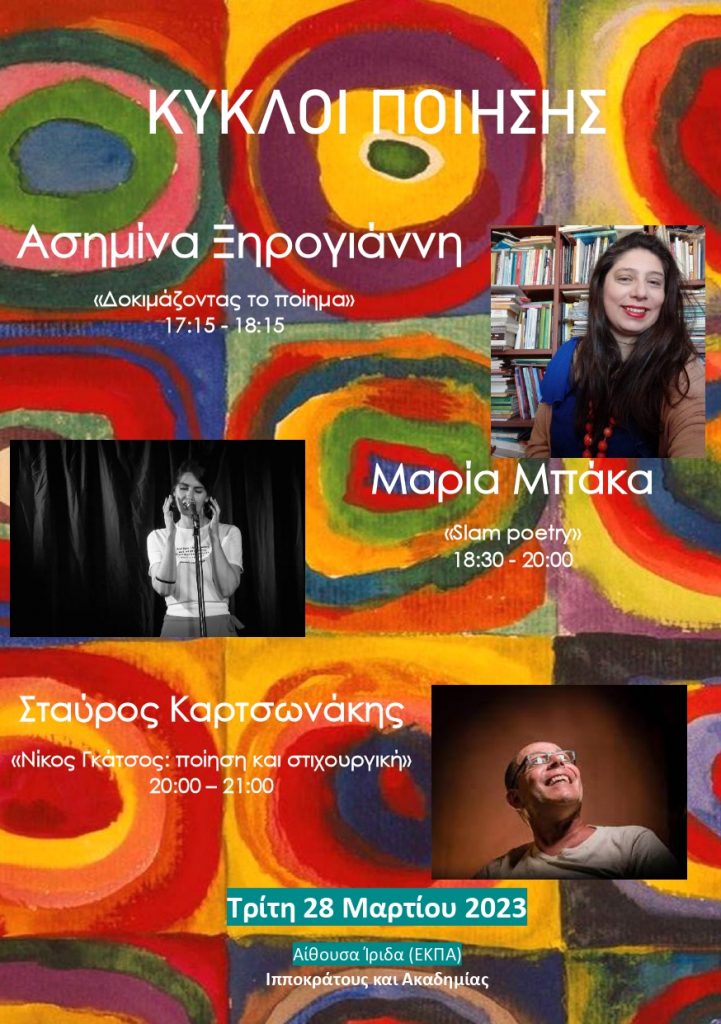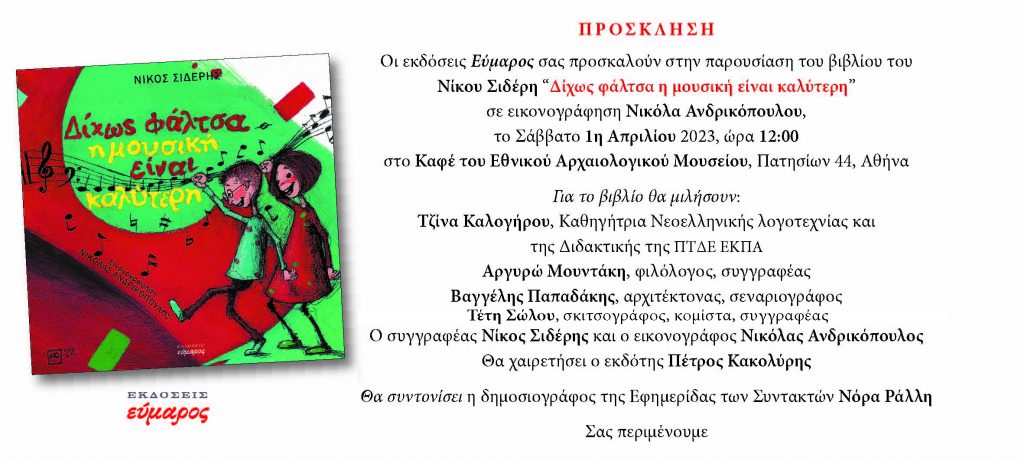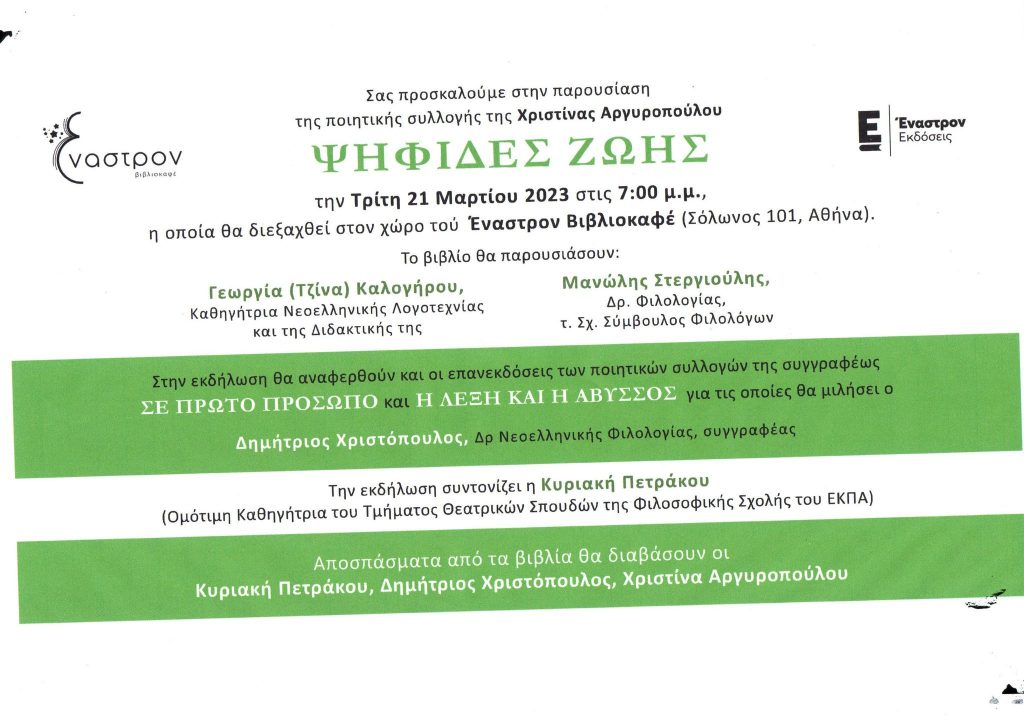Αγαπητές φοιτήτριες, αγαπητοί φοιτητές,
με χαρά σας προσκαλούμε στην επιστημονική εκδήλωση με θέμα «Εκπαίδευση,
ανθρώπινα δικαιώματα: προκλήσεις και ευκαιρίες» που διοργανώνουν από
κοινού η Ελληνοαμερικανική Ένωση, το Παιδαγωγικό Τμήμα Δημοτικής
Εκπαίδευσης του ΕΚΠΑ και η Athens Comics Library στο πλαίσιο της Ημερίδας
«Εκπαίδευση σε θέματα Ειρήνης και Ανθρωπίνων Δικαιωμάτων: Θεωρία και
Πράξη» με τιμώμενο πρόσωπο την Δρ Maria Hantzopoulos, Αν. Καθηγήτρια
Παιδαγωγικών στο Vassar College.
Στο παρακάτω link μπορείτε να δείτε το αναλυτικό πρόγραμμα της ημέρας και πατώντας στο σύμβολο + δίπλα σε κάθε επιμέρους εκδήλωση τις αντίστοιχες λεπτομέρειες.
Είστε όλες και όλοι ευπρόσδεκτοι! Είναι σημαντικό να παρακολουθήσετε τις εργασίες και να συμμετέχετε στο workshop.
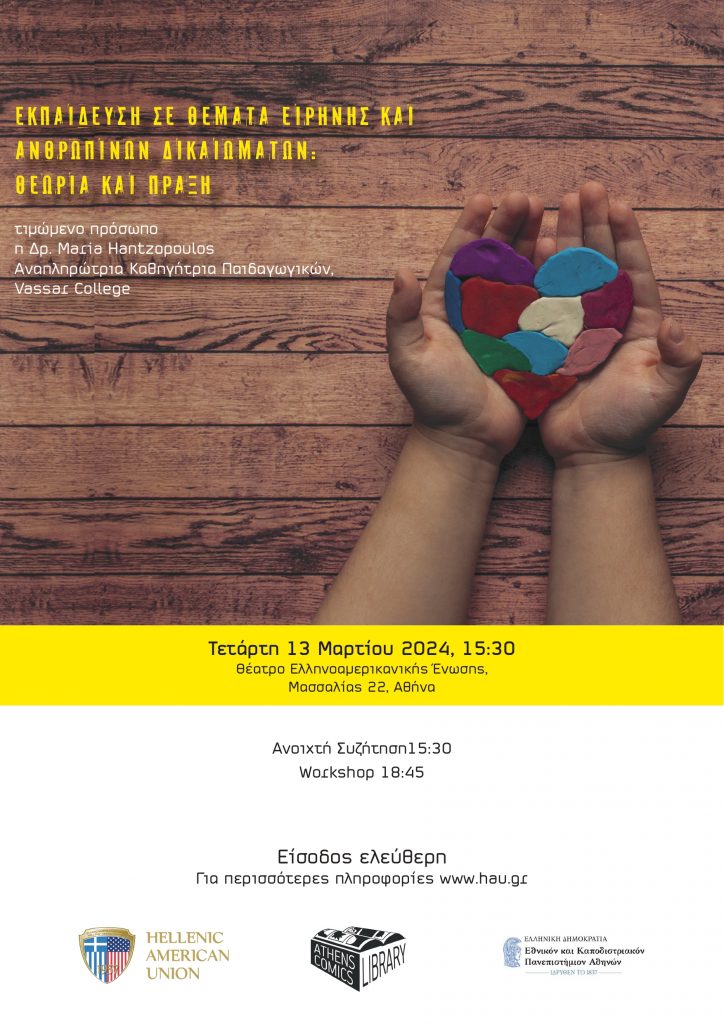
ΘΑ ΔΟΘΟΥΝ ΒΕΒΑΙΩΣΕΙΣ ΣΥΜΜΕΤΟΧΗΣ.
ΓΙΑ ΤΗ ΚΑΛΎΤΕΡΗ ΕΞΥΠΗΡΈΤΗΣΉ ΣΑΣ ΔΗΛΏΣΤΕ ΠΑΡΑΚΑΛΏ ΤΟ ΣΥΝΤΟΜΟΤΕΡΟ ΤΗ ΣΥΜΜΕΤΟΧΗ ΣΑΣ ΣΤΗΝ ΚΥΡΙΑ ΕΥΑΓΓΕΛΙΑ ΜΑΡΚΕΛΛΑ ΜΑΥΡΕΛΛΗ
evangeliamavreli@gmail.com
